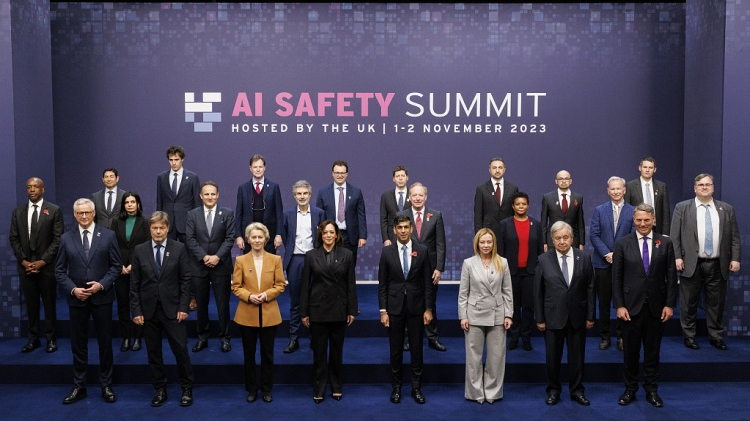Editor’s note: Qiao Basheng, a special commentator on current affairs for CGTN, is a researcher at the Research Center for External Publicity and Cultural Security, the School of National Security, the Human Rights Research Center, Northwest University of Political Science and Law. The article reflects the author’s opinions and not necessarily those of CGTN.
The first Global Artificial Intelligence (AI) Security Summit was recently held in Bletchley Park, UK, to discuss the risks and opportunities brought about by the rapid development of AI technology.
AI technology has shown deep development potential as a new field of human development driven by new theories and technologies such as mobile internet, big data, supercomputing, cloud computing, sensor networks, and brain science. Countries around the world have taken the development of artificial intelligence as a major strategy to enhance national competitiveness and safeguard national security.
Trends in the development of AI
The comprehensive promotion of the development of related disciplines, the improvement of theoretical modeling, technological innovation, and the upgrading of software and hardware have triggered a chain breakthrough in the field of AI. Judging from the current development trend, the new generation of AI technology takes algorithms as the core and data and hardware as the basis to improve perception and recognition, knowledge computing, cognitive reasoning, motion execution, human-computer interaction, and other capabilities of artificial intelligence.
In the economic field, AI, as the core driving force of a new round of industrial transformation, will further release the huge energy accumulated in the previous scientific and technological revolutions and industrial transformations, create a new powerful engine, reconstruct all aspects of economic activities such as production, distribution, exchange, and consumption, form new needs from macro to micro fields, give birth to new technologies, products, industries, formats, and models, trigger major changes in the economic structure, profoundly change human production and lifestyles and thinking patterns, and achieve an overall jump in social productivity.
In the social sphere, the application of AI in education, medical care, elderly care, environmental protection, urban operation, judicial services, and other fields will improve the precision of public services and improve the quality of people’s lives. AI can accurately perceive, predict, and warn of major situations in the operation of infrastructure and social security, timely grasp the changes in group cognition and psychology, and actively make decisions and responses, which will significantly improve the ability and level of social governance and play an irreplaceable role in effectively maintaining social stability.



